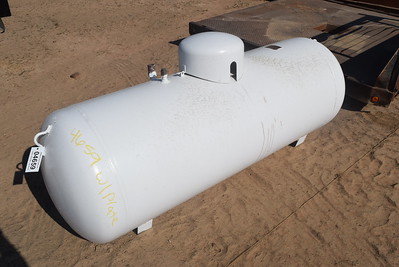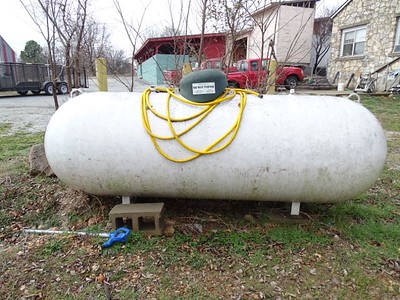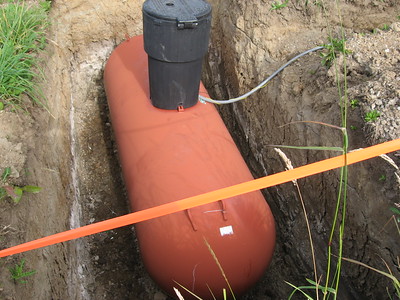
One of the larger options available for purchase is the 250 gallon propane tank. These tanks offer a long-lasting fuel supply for homes and businesses, and can potentially provide cost savings compared to smaller tanks. In this article, we will take a closer look at 250 gallon propane tanks for sale in Texas, including where to find them, installation and maintenance considerations, and tips for finding the best deals. Whether you’re a homeowner looking to upgrade your fuel storage or a business owner in need of a reliable fuel source, a 250 gallon propane tank may be the perfect solution.
Here’s an article about How to Buy a 250 Gallon Propane Tank.
[table id=3 /]
Where to Buy 250 Gallon Propane Tanks in Texas
If you’re looking for a 250 gallon propane tank, there are a few places you can check. Your local hardware store or home improvement center is a good place to start. You can also check online retailers like Amazon.
When choosing a propane tank, it’s important to select one that’s made from durable materials. You’ll also want to choose a tank that’s the right size for your needs. A 250 gallon tank should be sufficient for most households.
Here are other places where you can purchase this size of propane tank:
Propane companies and suppliers
You can buy directly from a propane company or supplier, or you can purchase from a retailer. Each option has its own set of benefits and drawbacks, so it’s important to do your research before making a decision. If you’re looking for the best deal on a 250 gallon propane tank, buying directly from a company or supplier is probably your best bet. They’ll typically have the lowest prices and will often offer free delivery as well. Just make sure you understand the terms of their warranty before making your purchase.
Here are the companies and suppliers in Texas where you buy this size of tank:
- Nelson Propane Gas Inc
- Ferrellgas
- AmeriGas
- Suburban Propane
- ThompsonGas
- U-Haul
- Pinnacle Propane
- Heritage Propane
- Matheson Tri-Gas, Inc.
- Kelly Propane and Fuel
- AmeriGas Propane
- A-1 Propane Inc.
- Green’s Blue Flame Gas
Hardware stores and equipment rental companies
If you’re looking for a 250 gallon propane tank for sale, your best bet is to check with your local hardware store or equipment rental company. These businesses typically have a wide selection of propane tanks in various sizes and capacities, so you should be able to find one that meets your needs.
Once you’ve narrowed down your options, it’s time to compare prices. Propane tanks can vary significantly in price depending on the size, capacity, and features they offer. Be sure to compare prices from multiple vendors before making your final decision.
Online retailers
Many online retailers specialize in selling propane tanks of all sizes, including 250 gallon tanks. This can be a convenient option for those who live in rural areas or have difficulty finding a local supplier. Additionally, online retailers often have a wider selection of propane tanks available for purchase, and it may be easier to compare prices and features. However, it’s important to note that purchasing a propane tank online also mean that you may have to arrange for its delivery and installation. It’s advisable to check with the retailer if they offer delivery and installation services or if they can recommend a professional in your area.
Many companies will deliver your tank for free, but some may charge a delivery fee. Also, be sure to ask about any installation fees that may be associated with your purchase. Once you have your new tank, it’s important to keep it maintained. Be sure to have it inspected regularly by a qualified technician. And, if you ever need to refill your tank, be sure to follow the proper safety procedures to avoid any accidents.
Types of 250 Gallon Propane Tanks Available
When it comes to purchasing a 250 gallon propane tank, there are several different types available to choose from. The most common types include aboveground tanks, underground tanks, and vertical tanks. Aboveground tanks, underground, vertical and horizontal.
Above-ground tanks
250 gallon Above-ground propane tanks are the most popular type of propane tank and are typically the most affordable option. They are designed to be installed above the ground and are visible. They are also the easiest to install and maintain. Above-ground tanks are made of steel and are typically painted with a weather-resistant finish to protect the tank from the elements.
They are typically installed on a flat, level surface, such as a concrete pad or gravel bed, and are anchored to the ground to prevent movement during high winds or other severe weather conditions. They come in different size and shape such as horizontal or vertical cylindrical shape, and are equipped with safety features like overfill prevention valve, emergency shut-off valve, and pressure relief valve. These tanks are perfect for residential and small commercial use.
Underground tanks
Underground propane tanks are designed to be buried beneath the surface and are a great option for those who want to keep their propane tank out of sight. They are typically more expensive than aboveground tanks, and require special installation and maintenance.
These tanks are typically made of steel, fiberglass, or plastic, and are designed to resist corrosion and water infiltration. They are typically installed in a hole that is excavated on a flat, level surface, such as a concrete pad or gravel bed, and are anchored to the ground to prevent movement during high winds or other severe weather conditions.
They are equipped with safety features such as overfill prevention valve, emergency shut-off valve, and pressure relief valve. These tanks are perfect for residential and small commercial use, but they need to be checked and maintained regularly to ensure they are functioning properly and safely. Moreover, when installing an underground tank, it’s important to check local regulations and obtain any necessary permits, as there may be specific requirements for underground tank installation in your area.
Vertical tanks
Vertical tanks are typically installed on a flat, level surface, such as a concrete pad or gravel bed. They are anchored to the ground to prevent movement during high winds or other severe weather conditions. The height of the tank allows easy access to the gauge, fill and emergency valves. They are designed to handle high pressure and heavy use, and they can be used for commercial and industrial applications. However, like other types of propane tanks, they need to be checked and maintained regularly to ensure they are functioning properly and safely.
Horizontal tanks
Horizontal 250 gallon propane tanks are cylindrical in shape and are typically installed on their side, with the diameter being the width of the tank.
There are many benefits to using horizontal propane tanks over other types of tanks. Horizontal tanks offer a larger capacity than vertical tanks of the same size. This means that you can store more propane in a horizontal tank without taking up as much space. Horizontal tanks are also less likely to tip over than vertical tanks.
This makes them a safer option for use in areas where there is potential for tipping, such as on uneven ground. Another benefit of horizontal propane tanks is that they can be placed closer to the ground. This makes them easier to fill and helps to prevent leaks. It also makes it easier to connect hoses and other equipment to the tank.
Factors to Consider When Purchasing a 250 Gallon Propane Tank
When it comes to purchasing a 250 gallon propane tank, there are several factors that you need to take into consideration in order to make sure that you are getting the best possible deal. Here are some of the things that you need to keep in mind:
Tank size and capacity
When you’re buying a propane tank, it’s important to consider the size and capacity of the tank. The size of the tank will determine how much propane it can hold, and the capacity will determine how long the tank will last.
The most important thing to consider when choosing a propane tank is the size of the tank. The larger the tank, the more propane it can hold. This is important because you want to make sure that you have enough propane to last through your event or project.
The next thing to consider is the capacity of the tank. The capacity is measured in gallons, and it tells you how long the tank will last. A higher-capacity tank will last longer than a lower-capacity tank. This is important because you don’t want to run out of propane in the middle of your event or project.
How much does it cost to purchase
The cost of a 250 gallon propane tank can vary depending on the brand and supplier. The average cost of this size of propane tank is between $700 and $900. If you want a larger tank, the price will increase. The size of the tank will also affect how much propane you need to fill it. A good rule of thumb is that one gallon of propane will fill about four square feet of space. You’ll also need to factor in the cost of having the propane tank installed. This can range from $500 to $1,000, depending on the company you use and the complexity of the installation.
Installation and maintenance
When you purchase a 250 gallon propane tank, it is important to keep in mind both the installation and maintenance of the tank. The first thing to consider is where you will install the tank. It is important to choose a level spot on your property that is at least 10 feet away from any buildings or other structures. Once you have found the perfect spot, you will need to excavate a hole that is large enough to accommodate the tank.
After the hole has been dug, the next step is to install a concrete pad on which the tank will sit. Once the pad has dried, you can then place the tank on top of it and secure it in place using straps or other similar methods. Now that the tank is installed, you will need to connect it to your home’s propane system.
This should be done by a professional who has experience with propane tanks. Once the connection has been made, you can then test the system to ensure that it is working properly. It is also important to remember that propane tanks require regular maintenance in order to function properly. This includes tasks such as checking for leaks, testing the pressure gauge, and cleaning the exterior of the tank.
By performing these regular maintenance tasks, you can help extend the life of your propane tank and avoid any potential problems.
Local regulations and codes
it’s important to be aware of local regulations and codes that may apply. These regulations can vary depending on your location and the type of tank you are purchasing. Here are a few things to consider when researching local regulations and codes for propane tanks:
- Permits: Depending on your location, you may need to obtain a permit to install a propane tank. This may include submitting plans and undergoing inspections to ensure that the installation meets safety and building codes.
- Tank Size: Some locations may have regulations that limit the size of propane tanks that can be installed.
- Installation: Local codes may specify requirements for how a propane tank should be installed, including the distance between the tank and buildings or property lines, the type of surface the tank must be installed on, and the materials that can be used to construct the tank pad.
- Safety: Local regulations may require safety features such as emergency shut-off valves and pressure relief valves, and may mandate regular safety inspections for propane tanks.
- Insurance: Some insurance companies may have requirements for propane tank installation and maintenance in order to provide coverage.
It’s important to check with local authorities such as fire department or building department, or a propane supplier to get the most accurate and up to date information on local regulations and codes that apply to your area.
Is It the Right Size for Your Need
When shopping for a propane tank, it’s important to consider the purpose for which you’ll be using it. For example, if you’re planning on using it for residential heating, you’ll want to make sure it’s properly sized for your home. On the other hand, if you’re looking for a tank to use for commercial or industrial purposes, you’ll need to choose one that’s designed for that type of use.
Once you’ve determined the size and capacity of the tank you need, the next step is to select a model that’s right for you. There are many different types of propane tanks on the market, so it’s important to do some research before making your purchase. You can start by reading online reviews from other consumers who have purchased propane tanks in the past. This can give you a good idea of which models are most popular and which ones tend to have the most satisfied customers.
If you’re decided that this tank is the right size for your needs, there are a few things to consider. First, think about the size of your home. If you have a small home, you may not need as much propane as someone with a larger home. Second, consider how much propane you use in a typical month. If you use a lot of propane for cooking, heating, and hot water, you’ll need a larger tank. On the other hand, if you only use propane for occasional cooking, a smaller tank may be sufficient. To determine the right size tank for your needs, it’s best to consult with a propane retailer or installer. They can help you assess your propane usage and recommend the appropriate tank size for your home.
To Make a Conclusion
There are many factors to consider when purchasing a propane tank. The size of the tank, the price, and the location are all important factors. The 250 gallon propane tank for sale in Texas is a great option for those who need a large amount of propane. The size of the tank will allow you to store plenty of propane, and the price is very reasonable. The location is also convenient, as it is located in Texas.
There are many reputable dealers that sell propane tanks of all sizes, and you’re sure to find one that meets your needs. When shopping for a propane tank, be sure to consider the price, and warranty. Also, be sure to ask about delivery and installation options. With a little bit of research, you’ll be able to find the perfect propane tank for your home or business.

Mike is an experienced propane technician with over 15 years of professional experience in the field. He has dedicated his career to helping customers with their propane needs, from installation to maintenance and repair. Together with Jeremy, he co-founded this website to provide useful information and guidance to customers seeking reliable propane services.







